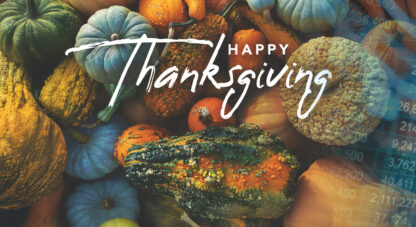Here’s the news of the week – and how we see it here at McAlvany Wealth Management:
Evaluating the Storm

Corona: The new “value” beer? Or value trap?
It is virtually impossible to discuss hard assets without addressing this week’s global market rout on a more macro level. In market panics like this, individual company fundamentals take a back seat to macro concerns. I think it helps to provide some context for how we got here so we can understand what sorts of scenarios might unfold.
Over the last few months we have seen an unprecedented run-up in the stock market. Until this week, the S&P was up over 38 percent since the beginning of 2019, and 14.6 percent since the beginning of the fourth quarter of 2019. More importantly, valuations were lofty by so many measures, including the S&P price/earnings (p/e) ratio, the Shiller P/E ratio (which is effectively an inflation-adjusted PE), enterprise value to EBITDA, dividend yield, and earnings yield. It seemed like every day the market was making record highs. Investor sentiment was ebullient. Margin debt balances total more than $560 billion according to Bloomberg, reflecting continued confidence in the market’s ability to continue its seemingly never-ending rally.
Enter an exogenous shock in the form of coronavirus (COVID-19), which is a clear and growing disruption to the global economy. I think it is fair to say that earnings estimates across many sectors and companies for the first half of 2020 are going to be coming down. Listening to conference calls over this last week, the constant refrain was a complete lack of visibility, and therefore confidence, in 2020 estimates. We see signs of stress in the credit markets as well, and we point you to Doug Noland’s Credit Bubble Bulletin for more detail and analysis in that regard: https://mwealthm.com/ccb/. Increasingly, a biological problem is becoming an economic one, and in turn is becoming a financial one as the global economy appears poised to grind to a standstill, at least for a time. Prior to Thursday, the sell-off was largely orderly, but momentum often begets momentum – as we have seen to the upside. The selling took on a more frenetic and desperate tone as support levels and moving averages were broken to the downside, and the CBOE VIX Implied Volatility Index spiked and closed today near the week’s highs. The headline risk over the weekend should not be discounted or ignored. The plentiful liquidity we have seen has suddenly tightened dramatically, and we have heard several reports of margin calls and liquidations at large hedge funds, which brings about further selling.
Just as the bull market rally we have seen is unprecedented, equally as unprecedented is this selloff. The old platitude “the market hates uncertainty” has manifested in the extreme levels of fear and capitulation we have seen over the last 48 hours. The global markets have wiped out about $6 trillion in value over the last week. The pundits are now coming around to the idea that global growth for 2020 may very well be nonexistent, if not negative. But to a degree, given the melt-up we have seen in stocks, this correction was inevitable. If it hadn’t been COV-19, it would likely have been something else.
As for us here at MWM, we are beginning to see some value in our areas of interest and expertise, and such extreme levels of fear start to make thinking about building positions for the long-term interesting. We think it is important to remove emotion from our analysis, unlike our friend in the photo above. However, we are very respectful of the environment, downside momentum, and further risks to global commerce in the context of COV-19. Ultimately, we think it is a good time to have a lot of dry powder, and believe that opportunities will present in the future. In other words, this too shall pass.
On a more personal note, while we do not wish to further add to the cacophony of panic that the media seems to take great pleasure in reporting, nor do we wish to pigeonhole ourselves as the “tin foil hat” crowd, we do think it is somewhat prudent to consider stocking up on a few things in the event of disruption of supply of key goods. Worst case, if we are wrong, you have a few extra cans of soup in the pantry. We would rather be wrong about this than be underprepared, as that kind of wrong can be much more problematic. We recommend extra paper products, non-perishables, and basic first aid.
Best Regards,
David McAlvany
Chief Executive Officer
MWM LLC















